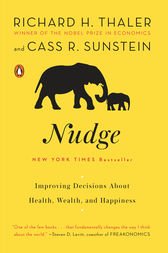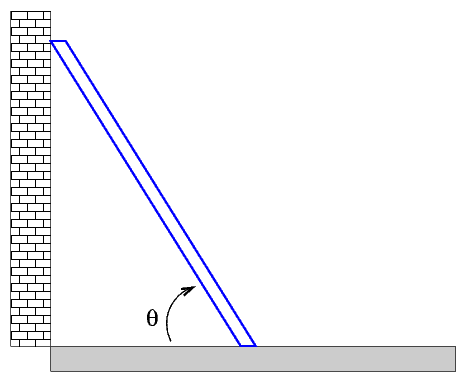Teach Better Series: Novices, Experts, and the Master Teacher

Are you an excellent driver? Did you know most people believe themselves to be a “better than average” driver? Do you believe yourself to be better than most parents at parenting, better than most people at communicating your ideas, or better at “common sense” thinking that most people? The book Nudge (Thaler, 2009) from the 2017 Nobel Prize winning author suggests that most people believe themselves to be “better than average” when it comes to most things they do regularly. Playing off of psychological concepts like confirmation bias, most people are the heroes of their own narrative as they only see what they see and only know what they know, believing deeply that because their intentions are good, their behaviors must also be good. But of course, we also typically judge ourselves by intention whereas we judge others by behaviors, leading to so much disappointment and strife.
As this is the human condition, while also knowing that not everyone can be “better than average” at any job, no matter how often they do it, teaching seems ripe for examination. Rare is the professor who hears an inspirational keynote about effective education who doesn’t think, “If only so and so could hear this!” But if confirmation bias and intention verses action is at work in all of us, every instructor should likely examine their own effectiveness on a regular basis. So, here is the first concept from the series, “Teach Better” to help us all create ‘better learning’ in various contexts.
An OER (aka – free) book that should find its way onto every educator’s shelf is How People Learn (2000). Supported by a grant between the National Academy of Sciences and the U.S. Department of Education, the study draws on expertise from the councils of the National Academy of Sciences, the National Academy of Engineering, and the Institute of Medicine.
One important dichotomy (of many) the book highlights, has to do with the notion of experts and novices. Augmenting this study’s findings, Dweck (Mindset, 2007), Davidson (Now You See It, 2011) and Duckworth (Grit, 2016) begin to explain behaviors performed by experts (who may or may not also be master teachers) which genuinely fosters learning by novices (students).
To be sure, higher education is filled with experts. People who have thoroughly studied and made connections from their home discipline winding out like roots from the deepest trees to other ancillary and interesting disciplines walk the halls of every college in the land. But it is likely not hard to imagine some of those experts as too knowledgeable, or perhaps better stated as having little knowledge of other cultural, pedagogical, or simply deemed less-important things. Some seem to eat, dream, and breathe their subject matter with little regard for much else.
Keeping in mind that students need a lot of “connectors” between an expert’s understanding of something and their limited view as a novice, we start to see the difference between an expert and a master teacher.
Experts use jargon and heightened language – master teachers use language that demystifies for the learner.
It’s one thing to speak with a professor after class, only to hear them use words that need a definition to define another term. But it’s another thing entirely to have that happen during class. Some interesting research has been performed regarding the orthographic lexicon. Take an expert performing a lecture. When that expert uses an uncommon word for an audience (albeit a common word to the expert), there is a low likelihood of being interrupted so as to ask for a definition. (This is especially true if a student is worried they may have missed it in the reading, etc.) So, novices will employ various techniques by which to define the term on their own. These techniques can range from 20-45 seconds, by which time they have missed 100-250 words of the lecture. At that point, many listeners “check out” as they have missed too much and now give up. How many times does a novice need to hear a new word so as to first habitualize its use and then understand it? The answer is variable rich and will be addressed in a later blog, but needless to say, more than just a few.

Experts focus solely on the mechanics – master teachers make sure both mechanic and frame are involved in learning.
Worthy of another blog (next in the series), the concept of mechanic and frame are important. Think back to calculating an angle. There are mechanics that feed such an equation like a working understanding of opposite and adjacent, measuring a tangent, etc. Novices (students) may practice calculating and configuring those measures often. Yet, when asked how far up a wall a ladder might go or how to determine the best angle for that ladder, they are paralyzed and confounded. Why? Because novices need to work at framing usage of the those same mechanics in order to truly “understand” almost any concept.
Experts focus on what first – master teachers focus on learning why first. In other words, master teachers focus on learning, whereas experts focus on generating information or content.
In early iterations, it was assumed that “why” only mattered to adult learners (andragogy), but we now see the importance to younger and younger learners. But at the end of the day, without knowing why something is, or why something should not, or why something can, it is hard to argue that a comprehensive understanding of “something” exists.
Considering the different approaches of expert verses master teacher behavior may help explain why so few students come out of an expert’s care with much learning at all. They may be able to perform a few mechanics (until those concepts slip from short-term memory) but students struggle to figure out how to connect those ideas back to the bigger framework of why or when. Simply put: students have not learned.
In the next blog in this series, we will examine the frame vs the mechanic and some of the implications for students (novices) when it comes to both the forest and the trees.
Good luck and good learning.